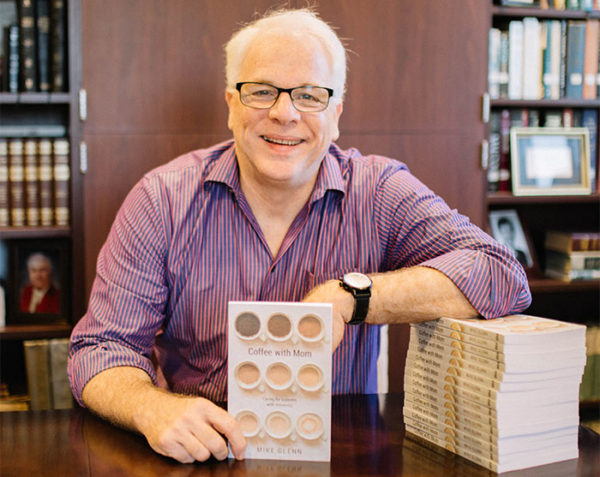Although his medical treatment takes 13 hours out of every day, Bill Stokes still manages to serve full time as director of missions (DOM) for Sipsey Association.
Stokes is a Type 2 diabetic who undergoes kidney dialysis daily to counter the effects of renal failure, a frequent complication of diabetes. He also suffers from high blood pressure and high cholesterol and has an artificial heart valve. “It (diabetes) affects all the organs of the body,” he said.
Stokes, age 62, was diagnosed with diabetes 26 years ago. Complications of the disease started to catch up with him about five years ago, and he has been on kidney dialysis for the past three years.
Yet managing a chronic illness and a ministry is “not too big of a problem,” according to Stokes. He points out that Sipsey Association, where he has served the past three years, is a small association made up of 13 churches. Therefore, Stokes maintains its office right in his own home, a convenient place for administering the medical treatments he needs. “The churches understand,” he said. “I’ve offered to resign because of my health, and they didn’t seem to want that.” Instead, Stokes said churches have exhibited tolerance and understanding about his disease and the limitations it forces on him.
Stokes, a native of Alabama, previously was a pastor for 10 years. He and his wife, Louise, have three children and six grandchildren.
As a diabetic, Stokes checks his blood, sticking his finger for glucose analysis through a meter three times a day.
When he was first diagnosed with diabetes he initially required insulin, then lost some weight and was able to manage the disease with oral medication for some time. Eventually he had to go back on insulin, which is usually administered through daily, sometimes multiple, injections. The insulin is now administered as he undergoes dialysis.
Throughout the years Stokes has avoided the drama and trauma of extreme cases of high and low blood sugar. He’s never suffered from insulin shock or been hospitalized for ketoacidosis, life-threatening high blood sugar. But treatment for renal failure, which involves sugar in the fluid used in his treatment, has made the diabetes a little harder to control.
The peritoneal dialysis is administered at home, a procedure that takes about 13 hours a day, 10 of which is accomplished while Stokes sleeps. The other part of the transfer takes place in the afternoon. If Stokes is at home, he does it there. But while he’s curtailed his travel schedule somewhat, he’s still able to vacation from time to time and take in ministry conferences on occasion. Plus, he makes regular visits to the churches in his association. He packs his car with necessary equipment and supplies and takes treatments in a hotel room or in his car. “I do a lot in my car when I travel or when I’m out and about,” he said.
As DOM, Stokes sees his role as an encourager to churches. “I see what I can do to help them,” he said. “I don’t try to interfere.”
Although he blames himself for not monitoring his diabetes as closely as he should have during some of the years of his disease, Stokes takes his illness in stride. “Things come up in your life, and you have to learn to deal with it. Deal with it the best you can with the help of the Lord.”
Hardship has its benefits, too, according to Stokes. “When you go through such catastrophes, you learn to depend upon the Lord. I try not to let it get me down and look for the good in everything that comes my way.”
Illness has a way of making a person more thankful for the portion of good health or other blessings he or she enjoys, Stokes said.
“I feel like it makes me more appreciative of what I have and what I can do,” he said. “So often we take life for granted. When you’re restricted in ability to do and get around, it increases our faith and our trust in the Lord.”
His increased dependence upon the Lord has been a side effect of illness that Stokes has learned to appreciate.
“I know that for the grace of the Lord I wouldn’t have been here the last five or six years,” he said.
Illness increases DOM’s faith
Related Posts

FDA, researchers seek methods of early detection of Alzheimer’s
October 1, 2024
A new blood test could help doctors diagnose Alzheimer’s disease more accurately in a primary care setting, leading to crucial

Alzheimer’s, dementia: Pastor shares lessons learned
August 12, 2019
As a minister for more than 40 years, Mike Glenn walked through the valley of dementia and Alzheimer’s disease with

Shame isolates, destroys community, psychiatrist says
October 13, 2016
Nobody needs a psychiatrist to explain what shame feels like — we all know, said Curt Thompson, a noted psychiatrist
Prenatal classes catalyst for new life, faith, churches
January 22, 2015
The young woman gingerly crawls off a motor scooter, grateful for the ride. Before, Kalliyan Seng could make the two-mile

Share with others: